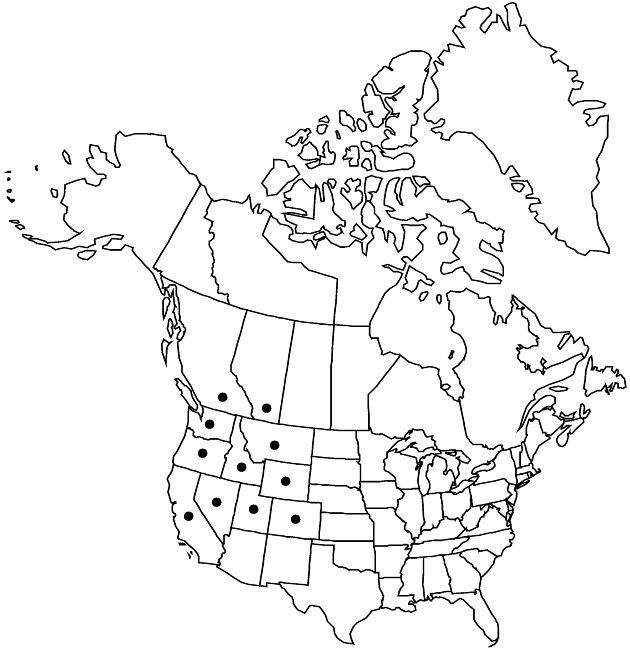Difference between revisions of "Artemisia ludoviciana subsp. incompta"
Publ. Carnegie Inst. Wash. 520: 327. 1940.
imported>Volume Importer |
imported>Volume Importer |
||
| Line 77: | Line 77: | ||
|publication year=1940 | |publication year=1940 | ||
|special status= | |special status= | ||
| − | |source xml=https:// | + | |source xml=https://bitbucket.org/aafc-mbb/fna-data-curation/src/2e0870ddd59836b60bcf96646a41e87ea5a5943a/coarse_grained_fna_xml/V19-20-21/V19_912.xml |
|tribe=Asteraceae tribe Anthemideae | |tribe=Asteraceae tribe Anthemideae | ||
|genus=Artemisia | |genus=Artemisia | ||
Latest revision as of 19:57, 5 November 2020
Stems 20–50(–80) cm, mostly simple, hairy. Leaves bicolor (white and green, or gray-green and green); blades narrowly to broadly lanceolate, 1.5–11 × 1–1.5 cm, irregularly lobed (lobes usually 1/3+ blade widths), faces hairy (abaxial) or glabrous or glabrescent. Heads in paniculiform arrays (10–)15–25(–35) × (2–)3–8(–10) cm. Involucres (broadly campanulate) 3(–4) × 3(–5) mm. Florets: pistillate 5–12; bisexual 6–45; corollas yellow, sometimes red-tinged, 1.5–2 mm. 2n = 36, 54.
Phenology: Flowering mid summer–late fall.
Habitat: Open meadows, mountain slopes
Elevation: 1900–3500 m
Distribution

Alta., B.C., Calif., Colo., Idaho, Mont., Nev., Oreg., Utah, Wash., Wyo., Mexico.
Discussion
Subspecies incompta varies. It could be (and has been) subdivided. The variation found within one population, as well as from one part of its range to another, makes the recognition of discrete taxa difficult as well as questionable. The morphologic variant treated as Artemisia lindleyana by some authors may warrant infraspecific status.
Selected References
None.